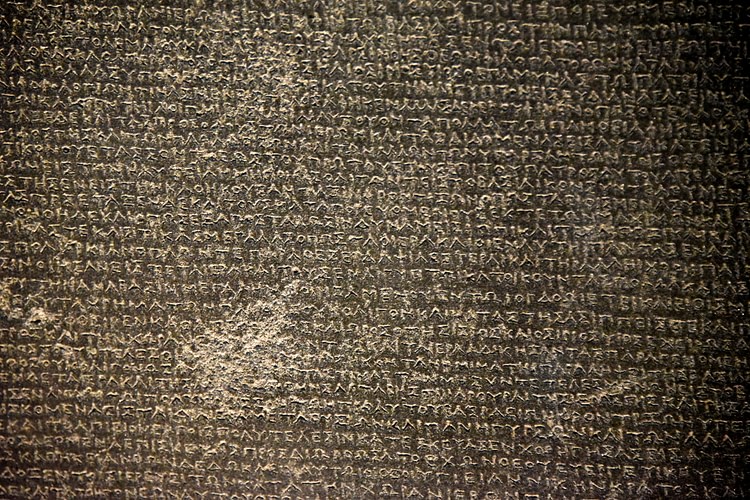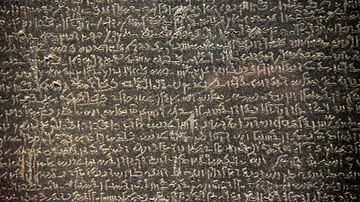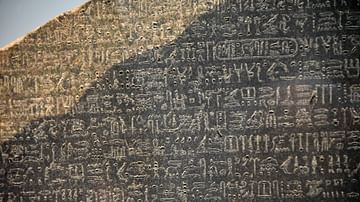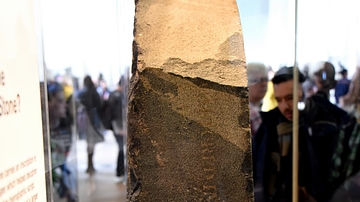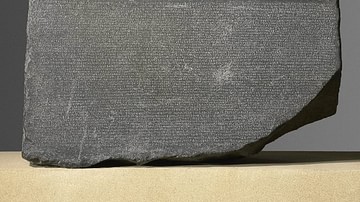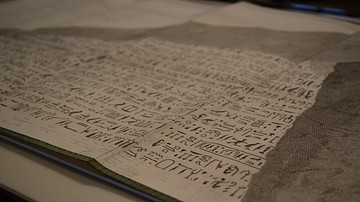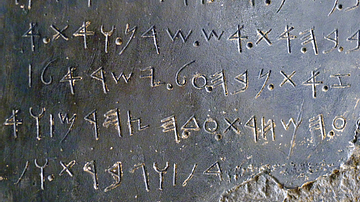Illustration
This is a zoomed-in detail of the lower part of the Rosetta stone showing the Greek text. The Rosetta Stone is a large almost complete fragment of a grey-pink granodiorite stela. A decree was carved on this stela using 3 ancient texts in 3 separate blocks; hieroglyphic, demotic, and Greek. This decree was passed by a council of priests. It affirms the royal cult of king Ptolemy V (who was 13-years-old) on the first anniversary of his coronation. It was found at Fort Saint Julien of El-Rashid (Rosetta) city, Egypt in 1799 CE. It was excavated by Pierre-François Bouchard (a French officer in the Engineers at Fort Julien) and was donated to the British Museum by King George III of the United Kingdom in 1802 CE. Ptolemaic Period, 196 BCE. (The British Museum, London).
Cite This Work
APA Style
Amin, O. S. M. (2016, July 15). Rosetta Stone Detail, Greek Text. World History Encyclopedia. Retrieved from https://www.worldhistory.org/image/5319/rosetta-stone-detail-greek-text/
Chicago Style
Amin, Osama Shukir Muhammed. "Rosetta Stone Detail, Greek Text." World History Encyclopedia. Last modified July 15, 2016. https://www.worldhistory.org/image/5319/rosetta-stone-detail-greek-text/.
MLA Style
Amin, Osama Shukir Muhammed. "Rosetta Stone Detail, Greek Text." World History Encyclopedia. World History Encyclopedia, 15 Jul 2016. Web. 18 Apr 2024.
